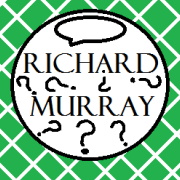-
Posts
3,651 -
Joined
-
Last visited
-
Days Won
118
richardmurray's Achievements
Single Status Update
See all updates by richardmurray
-
Someone ask me: what will the novels of the future be if all the protagonists do everything online? You wouldn‘t have the romcoms with Julia Roberts meeting Hugh Grant in a bookshop…
He originally asked me but i feel the question is good for all to answer
My answer is in sections: epistlary fiction/subordinate characters/the modern readership-viewership-listenership
Epistles are merely letters and online communication, whether people want to admit it or not are letters. Human beings are accustomed to epistlary work. Many segments of the bible are letters. Books of letters , linear or alinear temporally, were a fiscally profitable genre in various times in the white european literary industry<said industry includes the usa or australia>. Historically, precedence exist for financial viability of or customer desire to epistlary fiction.
Modern customers of fiction love the visual,they love visual description, pseudo realism, fantastical visions. At the core of epistle is the letters are not bound to give all details, to explain all events. Writers can choose that path of creation but it isn't mandatory. Sequentially, why many writers use letters as tools for a specific purpose in a non epistlary work. But, if all the protagonists and I add antagonists use letters, then for action , descriptive action, you need subordinate characters. not supporting but subordinate. to be blunt, you need robots, you need characters that can not act alone or are extensions of the protagonists or antagonists but individual enough to have a physical identity one can write about. In parallel, think of a doctor that performs surgery remotely. The doctor actions are in the same way as writing a letter, the machine that translates the doctors motions/words/typing into action on the patient, while it does not act absent impetus from the doctor is had individual elements. its programming/its energy/its maintenance/ its environment all can have a positive or negative influence on itself that can lead to scenarios many will call drama or definitely action. But they are not protagonists or antagonists.
Customers matter, they always have and always will. Art has no bounds. Many people today apply their opinions as rules of art but the truth is, art has no ruleset to it. In parallel, making money with art is where all the judgements have value and where many artists or readers , do not speak enough of their purpose in their judgements. to that end, the modern readership , as the questioner stated individually had problems with epistlary fiction. But the reason is complex.... Most human beings are not online nor do they have money. But to the humans who have money, many are online, many are multilingual. The buyers are used to reading epistlaries every day, tweet streams, facebook streams, instagram comment streams are all epistlaries. not written by a steven king or jk rowling, but a sequence of unknown strangers, but the readers are used to reading epistlaries full of drama.
I conclude with a question, based on what was said, what kind of work epistlary can bridge what the customers do every day, with fictional characters? In the film world you already see movies that use message screens in the films. Like any style, when it doesn't have many financially successful examples, the judgement passion in literary or art circles is silent cause they have nothing to base a judgement on. So, it is an open multilog financially, like writing modern epistles with online messages.
Now, what say you all?
- Show previous comments 1 more
-

A REPLY
Have you seen the recent movie Zola? It's based on a bunch of Tweets and it's a masterpiece
...it's not for the faint of heart but I enjoyed the style, story-telling and acting -

A REPLY
'Live Free or Die Hard', no lV of the Die Hard movies, was supposedly about cyberterrorism, at least for a little while, until the computer screens got so boring that the 'Analogue cop in a digital world' started to explode into the most ridiculous special effects, e.g. shooting down a helicopter with a jumping car…
...
The opposite extreme is Daniel Glattauer's delightful 'Gut gegen Nordwind', a totally epistetolary novel that consists exclusively of the email exchange between two unknown people (a love story). Enjoyable, but it felt like a one-off gimmick. But I thought the same when the first 'rap' song appeared …
My Response
when a book doesn't have a financially viable genre isn't allowable to be called a gimmick? -

A REPLY
I fear I didn‘t understand your last paragraph. Could you explain this again? First paragraph: yes, the issue of letters within writing/films is endlessly fascinating to me too, but is it to everyone? Second: here it seems that the future of mankind - or at least literature - desperately rests on the hope that somewhere, somehow there are still a few renegade people who actually do other things apart from tapping or swiping on their phones. Things with theatrical slapstick potential.
My Response
I can restate the last paragraph, succintly. Customer taste matter more than art when it comes to fiscal profitability of art. Not the quality of art, but the fiscal profitability of art.







.thumb.jpg.ed52910791d00308abb8c218695bec88.jpg)


